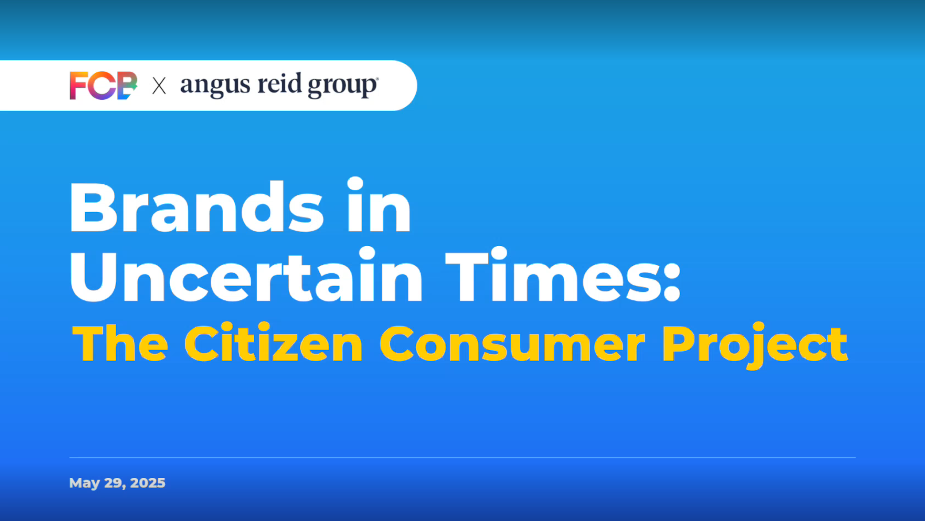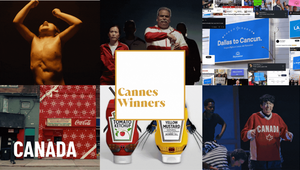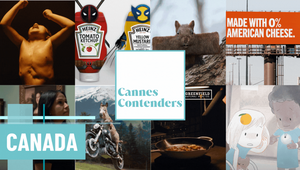
FCB and Angus Reid Group Reveal Canadian Consumer Tensions in New Study

In turbulent times, the rules of best practice within advertising, marketing and communications must be scrutinised. Consider the following. Across Canada and the US, one in two are worried about job security, over 50% report that tariffs are making it harder to save money or even pay for basic expenses like groceries, and nine out of 10 are concerned about cost of living. To put it lightly, times are changing, and that means agencies and brands need to play their cards intelligently, now more than ever.
These statistics are just some of the findings that FCB, in collaboration with research firm Angus Reid Group, have compiled with the launch of the Citizen Consumer Project, a new research study designed to help navigate today’s economic climate by analysing the intersectionality of citizenship and consumerism, as well as its impact on the industry.
Presented by FCB Canada’s chief strategy officer, Shelley Brown, and the Angus Reid Group’s head of public affairs, Jennifer Birch, at a live webinar, as well as by FCB global chief executive officer Tyler Turnbull and Angus Reid himself at Web Summit Vancouver, the sessions delved into the report’s findings, yielding multiple takeaways at a time when hopelessness is on the rise, and anger and disillusionment are at all time highs – to the point where it could upend both the economy and democracy as we know it.

“All of this is taking a really heavy emotional toll on people,” Shelley reported. “In the US and Canada respectively, 63% and 51% are feeling distressed and disengaged. People are feeling more negative about almost everything. Among the majorities, they’re much more likely to believe democracy is under threat. It’s also affecting how they behave as consumers. Two in three expect to cut back on their spending. As a target audience, this is a very challenging group, but we have to keep in mind that right now, they’re the majority.”
Meeting Pain with Purpose: How Brands Can Respond
The webinar made it clear that brands must think about the ways in which they’re delivering consumer value, both rationally and emotionally. In the case of the former, price and value – as they always have been – remain highly relevant in driving sales, both for the short term and foreseeable future. However, according to the CSO, the best long-term protection for a brand against price sensitivity lies in the latter, as it serves as a path to building a true connection with the target audience.
“You’ve got to find ways to tap into and help [consumers] take control of what they can in their lives,” she continued. “People are moving to discount brands and retailers. They’re trying to squeeze as much as they possibly can out of their loyalty programmes. They want to take control, but they're hurting, and they feel down. They need to feel loyalty too, and they’ll reward brands that get it – the ones that provide reassurance, but also optimism and a badly needed laugh.”

As it turns out, this is especially important for brands who might not be able to sing, for example, about having their category’s lowest prices from the rooftops. However, as Jennifer highlighted, so too is actually showing up in meaningful fashion based on the needs of specific target audiences.
As the head of public affairs pointed out, while 70% of Canadians feel proud of their country – compared to just 45% of Americans – 76% are also angry, which demonstrates a hypothetical advantage for local brands. Specifically, when 83% of the country’s respondents place importance on the ‘Buy Canadian’ movement, with 48% expressing a desire to buy domestic no matter what, it's clear that savvy businesses can capitalise on this to build brand equity.
“When we look at Canadians [and the top five things they associate with ‘showing up as Canadian’], they’re concerned that a brand produces and sources from Canadian suppliers. Headquartered in Canada is less important, but still number two, and majority Canadian-owned is in third place. When we look at the bottom two, ‘uses Canadian symbolism’ and ‘involved in Canada community causes’ are there. The fact that you’re putting a beaver or a maple leaf on something is not compelling to folks, generally speaking, and touting you’re involved in the community, while important for different reasons, is not sending the message that it’s a Canadian company.
“Now, it’s an expectation that you should be investing in the communities you’re in, but it’s something you should be doing regardless, as human beings. So, if you really want to elevate yourself as a Canadian brand, you need to focus on the top half, and not reduce yourself to the symbolism and ‘maplewashing’, which Shelley came up with.”

Jennifer also advised that some consumer brands may be able to bolster their reputations by leveraging the fact that they’re retaining public trust more effectively than governments and institutions – due to the fact that expectations of for-profits aren’t as high – to solve public issues… so long as they’re smart about it.
“Where people are frustrated that public issues aren’t being solved by governments, there is an opportunity for major organisations to come in and provide solutions that governments potentially can’t do as efficiently or effectively,” she explained. “Brands can capitalise, if you will, on some of these gaps in the ways citizens and governments are interacting, and take on some of that ownership. But, if you do, you better be able to solve it. If you say ‘Oh we’re going to fix the traffic issue in Toronto’, you better actually fix it, because you don’t have that foot to fall back on if you fail, like governments do (because at the end of the day, they’re doing what they do with public funds).”
Why Politics Can’t Be Ignored: What Bud Light and Target Got Wrong
While statistics, sentiment and the power of emotions are all viable marketing tactics, one of the biggest takeaways of the day was Shelley’s observation that politics do matter in marketing – they’re a fundamental part of truly understanding one’s audience through the critical lens of both citizens and consumers.
Referencing both sides of the political spectrum, with Bud Light’s decision to include Dylan Mulvaney in its 2023 marketing campaigns, despite having a more Republican-leaning consumer base (according to the 2024 Harvard Business Review), and Target’s recent decision to backpedal on DEI initiatives as prime examples, each served to highlight that if these brands had better understood their consumers as citizens, they might have seen greater success navigating difficult times.

“For a long time, brands have tried to stay outside of the political fray, and it’s really not a viable option anymore,” she explained. “Brands are political. If you’re going to know your consumer, you’ve got to add political affiliation to every tracking study. You have to understand how they view the world as a citizen. You’ve also got to think carefully about the channels that you choose, because that’s what sends a message to your target audience.
“Sometimes it’s a question of getting the information and knowing your customers so you can navigate and be wise, and sometimes it’s about going ‘Yeah, we have a political point of view and we’re going to express it strongly’. It really depends on your own brand values.”
While many other themes were explored at both events, and can be further investigated via the Citizen Consumer Project itself, it’s clear that despite the uncertain nature of the times, there’s still room for strong, decisive strategy. It’s clear that when brands and agencies engage the disengaged, know their politics, mind generational gaps and show a sense of empathy, they earn a real opportunity to further their cause. It’s just a matter of moving beyond short-term tactics and embracing audiences as both citizens and consumers simultaneously. The businesses that do it well will be the ones to watch in the months and years to come.
Watch the live webinar here.
Read more about Web Summit Vancouver here.















